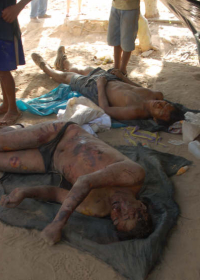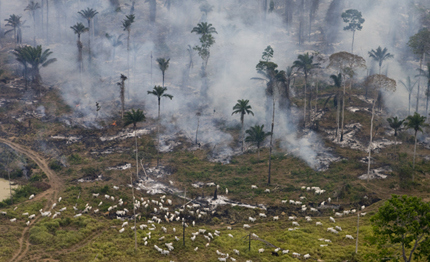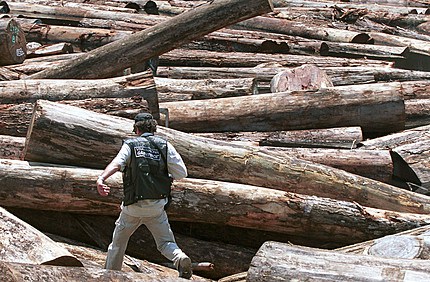ecological justice
Frequently Asked Questions Concerning the Philosophy, Politics and Historical Problems of Volunteering
This is a general and quick post in response to Frequently Asked Questions about the problems of choosing where to invest one’s time and labour when volunteering in foreign places with good intent. It started as a reply to a comment – part of a long thread about a conservation project in the Amazon – then expanded slightly to become this first draft of a short reply to questions concerning volunteering.
Where and what is good agency put into which structures? It is an endless journey through the soul and the corridors of political thinking, philosophical reflection, historical recognition and ethical considerations – and it is also that first single step of your journey. It begins in the mind, unfolds in the imagination and will have a material impact on the place you go to.
Over the years we have spend a lot of time and energy helping people finding their ways in Ecuador and Peru, we have spend a lot of time suggesting projects, providing contacts and so on. However, in the end, people mostly go and do their own thing anyway. However, if you have only 4-6 months time and want to connect sooner, and should you really want to do something in or around Tena, Napo, in the Ecuadorian Amazon, or in San Francisco in Peru, and if working on a small scale and community level with people outside of NGO structures, doing down-to-the-ground, bottom-up work, with lovely families, if that is your thing, then do get in touch.
Carbon Trading is Making a Killing and Destroying the Environment
Press Release: Carbon Markets Violate Indigenous Peoples’ Rights and Threaten Cultural Survival
“Indigenous Peoples are being forced to sign over their territories for REDD to the Gangsters of the Century, carbon traders, who are invading the world’s remaining forests that exist thanks to the knowledge of Indigenous Peoples,” denounced Marlon Santi, President of the CONAIE, the Confederation of Indigenous Nationalities of Ecuador, one of the most powerful native organizations in the world. “Our forests are spaces for life not carbon markets.”
Indigenous leader kidnapped and forced at gunpoint to surrender carbon rights for REDD in Papua New Guinea
New York, USA — As carbon traders hawk permits to pollute at the Second Annual Carbon Trading Summit, Indigenous Peoples denounced that selling the sky not only corrupts the sacred but also destroys the climate, violates human rights and threatens cultural survival.
“Carbon trading and carbon offsets are a crime against humanity and Creation,” said Tom Goldtooth, Executive Director of Indigenous Environmental Network. “The sky is sacred. This carbon market insanity privatizes the air and sells it to climate criminals like Shell so they can continue to pollute and destroy the climate and our future, rather than reducing their emissions at source.”
Two killed during protests against water laws in Ecuador.
Ecuador is currently seeing another indigenous uprising in response to the proposed Law of Water (amongst others). Yesterday, a group indigenous protesters (mainly from the Shuar nation) in the Amazon were shot at from a helicopter, leaving two dead and nine other wounded.
colonos is replicating here briefly a statement of the Confederation of Indigenous Nationalities of the Ecuadorian Amazon, and providing some links to further sources.
The proposed Law of Water is said to be in violation of the Ecuadorian Constitution, which prohibits all forms of privatisation of water. The law would allow for privatisation of water through the back door and prioritise needs of big developments (hydropower and mining) over those of the people. Moreover, in its article 43 it allows for the use of the Armed Forces in situations of protest and conflict around water use (such as when people would protest the diversion of community water for use in mining).
Read the rest of this entry »
Peru’s Congress Suspends Destructive Decrees: Not a victory, just one less defeat!
Today the world’s media carry the story of the Peruvian Congress having suspended the destructive decrees that caused a non-violent, yet forceful uprising by indigenous peoples organising to defend the Amazon from the oil and gas industry. It is not a victory – merely one less defeat! The forest continues to be destroyed. Drilling, pumping, spilling roads building and Christian conquest of hearts, souls and minds through concerted violence, repression, manipulation, false promises (“Jesus will buy you a fridge and a car”) and disrespect for the inhabitants of what was once the world’s largest (rain) forest, but which is now better described as a region threatened by destruction, deforestation, desertification, in brief, death. However, at least, for now the attempt to accelerate further the destruction has been pushed back, but not stopped. The struggle continues…..
June 11, 2009
World Briefing | The Americas
Peru: Decrees to Open Jungle Area to Investment Are Suspended
By SIMON ROMERO
Congress temporarily suspended two decrees issued by President Alan García that had helped set off recent protests by indigenous groups fearful of large oil and logging investments in the Peruvian Amazon. The decrees would open vast jungle areas to investment and allow companies to bypass indigenous communities to get permits for projects. The protests resulted in repression by security forces and apparent reprisals by Indians last week that left dozens dead.
See also: Top name brands implicated in Amazon destruction, New Greenpeace report shows how the cattle industry in Brazil is feeding demand for raw resources and “Slaughtering the Amazon”
Killings in the Amazon: Peruvian protests even more violently repressed
colonos is reproducing here a text by Ben Powless on rabble.ca, including the “INTERNATIONAL DENUCIATION of President Alan García Pérez of Peru and his admistration” by the COORDINATING BODY OF ANDEAN INDIGENOUS ORGANZIACIONES – CAOI.
We have received various notices from people in the Amazon reporting about 10 – 40 indigenous protesters having been shot dead.

Here goes:
50 days of protest and one massacre in the Peruvian Amazon
I’m writing this right now from Peru after having taken part in a 5 day Indigenous Peoples Summit held in Puno, Peru in the high Andes. Read the rest of this entry »
Eye Witness to Correa’s Profit Mining and Environmental Destruction: No News There!
This is yet another report about industrial activities in Ecuador, a country ruled by an authoritarian, economistic anti-environmentalist, who despises traditional ways of living when it stands in his way of mining and drilling for oil, building roads, riverways and airports, but who loves to present himself – in the media – as a friend of indigenous peoples, wearing traditional outfits and speaking (mountain) Kichwa. Welcome to Correa’s Ecuador:
Locals fight mining in Ecuador’s cloudforest
Christian Tym
Green Left Weekly, 2 May 2009
Many people still speak sincerely about the existence of “corporate responsibility”. While doing volunteer work in the Ecuadorian community of Junin, I got a different picture.
The story of the efforts of Copper Mesa Mining, one of Rio Tinto’s collaborators in gold and copper exploration in Ecuador, to overcome community resistance is an example of what modern “corporate responsibility” looks like.
The mining concession Copper Mesa bought from the Ecuadorian government is centered on the community of Junin and the Intag River.
The proposal was to evict four entire communities, 100 families in all. These people live off their land and depend on the outside world for only electricity and medical supplies.
Mining would destroy their entire way of life.
Seeds, sovereignty, and the Vía Campesina: Plants, property, and the promise of open source biology
Colonos recommends this paper by Jack Kloppenburg, “Seeds, sovereignty, and the Vía Campesina: Plants, property, and the promise of open source biology“, prepared for the Workshop on Food Sovereignty: Theory, Praxis and Power, 17-18 November 2008, St. Andrews College, University of Saskatchewan, draft dated 22 November 2008, 34 pp.
Here is a very interesting excerpt (pp. 16-17):
“The specific mechanism Michaels goes on to propose is a “General Public License for Plant Germplasm (GPLPG)” that is explicitly modeled on the GPL developed by the FOSS movement for software.
Read the rest of this entry »
Food Energy Nexus: Livelihoods and Sovereignty
Colonos would like to draw your attention to an interesting project by some good people unfolding in India, called Food Energy Nexus, which presents itself in this way:
“Millions of people living in the so-called developing world starved as the price of food soared in 2007-2008. Globally, the poorest are broadly women and children of colour, who were among the hardest hit by the rising food prices.
The drivers behind the latest food crises are complex with no single answer. But a range of actors including the IMF, NGOs, FAO has correlated biofuels with food price increases. Other factors have also significantly contributed to food price increases, such as increased demands for meat, supply dynamics, unseasonable droughts and rises in the price of oil.

Leading the Way: Indigenous Peoples’ Global Summit on Climate Change
Colonos is involved in preparing a concept paper, which will be presented at the “Indigenous Peoples’ Global Summit on Climate Change” at the Dena’ina Center in Anchorage, Alaska (USA), 20-24 April 2009. It concerns the categorisation and organisation of contents well as a licensing framework for a web portal providing access to climate change adaptation strategies and tactics based on indigenous knowledge practices and captured in the spirit of the practitioners, whether in moving pictures, still, song or poetry. Not an easy conceptual task on a rather politically volatile and culturally sensitive terrain. However, we thought (something like) “better us than someone with less of a strong political analysis and feeling of solidarity and spirit of rebellion” (just to blow our own horn, perhaps?!).
One of the central challenges is spelled out in this quote from the Introduction to a Special Issue of Futures: Futures of Indigenous Knowledges. Volume 41, Issue 1, Pages 1-66 (February 2009):
“[T]he future for [Indigenous Knowledges] IKs lies in the creation of a knowledge space for assembling diverse knowledges. The critical strategic capacity to allow the comparative evaluation and growth of diverse knowledge traditions with differing epistemologies and ontologies, with differing ways of understanding and framing the world, may be humanity’s last hope for a future. .. But … is it possible for IKs to be moved from their site of cultural production, enter the knowledge economy and become part of the global knowledge commons without losing their cultural specificity, without being homogenised and submerged in one globalised system?” (Turnbull 2009)
We can reveal that the concept paper recommends the Transmission Metadata Standard, links to IFIWatch.TV, and draws upon the experiences of the Free Culture movement, more specifically the Free Software movement’s strategies and tactics for the reform of copyright. More on that later…
Meanwhile, here is the invitation to the Indigenous Peoples’ Global Summit on Climate Change:

Mining Action Alert
Action Alert: Ask the Ecuadorian Government to Protect Human Rights During Upcoming Anti-Mining Demonstrations
The Ecuador Solidarity Network, an organization based in Canada and the United States, is joining human rights and indigenous peoples organizations in calling on President Rafael Correa to respect human rights during nation wide protests against large-scale mining that will begin on Monday January 19th.
The protests will spread from the Amazon and reach Quito, Ecuador’s capital, on January 20th. Anti-mining protests earlier this month were met with police violence in the Southern provinces of Azuay, Loja, Zamora Chinchipe and Morona Santiago. A number of activists were beaten and detained, and one leader was critically injured after being shot in the head.
The Confederation of Indigenous Nationalities of Ecuador (CONAIE) and a number of farmer and environmental organizations are protesting against the recent approval of a mining law by Congress, opening the country to large-scale metal mining. Canadian mining companies would benefit from many of the concessions. The CONAIE and other organizations contend that the new law will allow large-scale mining in protected areas and contaminate critical community water supplies. The CONAIE is also protesting against government plans to drill for oil in the Yasuni National Park, the rainforest home of two indigenous communities in voluntary isolation.
Following recent statements from the Permanent Assembly for Human Rights (APDH) and the Confederation of Indigenous Nationalities of Ecuador (CONAIE), the Ecuador Solidarity Network calls on activists around the world to support the human rights of protesters demonstrating against large-scale metal mining in Ecuador. The CONAIE emphasizes that the demonstrations will be peaceful and calls on President Correa to not use police or military forces against protesters.
E-mail President Rafael Correa and President of Congress Fernando Cordero and ask that the government take preventative action to ensure that protesters’ human rights are respected. We also denounce any attempt by right-wing organizations in the U.S. or Canada to opportunistically use the upcoming mobilizations to attack President Correa for motives that have nothing to do with indigenous rights or environmental protection.
Please send emails to:
Presidencia de la República, Presidente Rafael Correa:
presidencia @ presidencia . gov . ec
Presidencia Legislativa, Presidente de la Comision Legislativa y de Fiscalizacion, Fernando Cordero Cueva:
presidencia @ asambleaconstituyente . gov . ec
Please send a carbon copy of the messages to
ecuadorsolidarity @ gmail . com
Media Contacts:
Ecuador: Jennifer Moore, Ecuador Solidarity Network (593) 8-877-8928 / jenmoore0901 @ gmail . com
Canada: Jamie Kneen, Mining Watch (613) 761-2273
Jatun Sacha Foundation and Bioprivateering: Dodgy Business as Usual
As a curious reader of the blog stats is has once again been brought to my attention that there is widespread interest for information about the Jatun Sacha Foundation’s involvement in what is sometimes wrongly called biopiracy. There was never anything privately owned in the first place, as was the case when pirates liberated goods from the capitalist (slave) ships, hence bioprivateering is more to the point.
Colonos have previously posted about Jatun Sacha twice (1/2) and when looking in the stats today I noticed that quite a few people were clicking on the external link to see some proofs of the allegations. So I thought I’d save people some clicking and reading and excavate with a bit of gimping some of the relevant paragraphs of the Rafi Communique, September-October 1995 for all to easily see:
from:
Biopiracy Update: A Global Pandemic
![]() Download PDF (2 MB) – about 348 seconds on a 56k modem
Download PDF (2 MB) – about 348 seconds on a 56k modem
Cases from Thailand, Gabon, Ecuador, and Peru
RAFI is now called www.etcgroup.org
The Warped Mind of the Ecofascism Conspiracy Theorist
Colonos recently referred to David Suzuki in the context of DiCaprio’s documentary about climate chaos and change, the appropriately titled “11th Hour” (link should be generated automagically below) – and doing a bit of googling for that purpose led me to some presumptuous nonsense? about Suzuki being an “ecofascist”:
“Eco fascism, can be used in two different ways:
- For specific elements of radical environmentalism which are openly affiliated with neo-fascism, or which share conceptual similarities with fascist theories. It is used critically from an external source, and somewhat less commonly used from within as a self label, to refer to various white nationalist and third positionist groups who incorporate environmentalist positions into their ideology.
- The term is also used as a political epithet by political conservatives to discredit deep ecology, mainstream environmentalism, and other left and non-left ecological positions, and less frequently by political leftists to discredit environmental movements they see as non-left such as deep ecology.”
So who do the conspiracy theorists think are behind this socalled ecofascism? None others than the very same kind of people that actual, radical environmentalists – anyone that I have ever met, and it is quite a few anyway – would call the greenwashers:
“Greenwashing is the unjustified appropriation of environmental virtue by a company, an industry, a government, a politician or even a non-government organization to create a pro-environmental image, sell a product or a policy, or to try and rehabilitate their standing with the public and decision makers after being embroiled in controversy. Read the rest of this entry »



